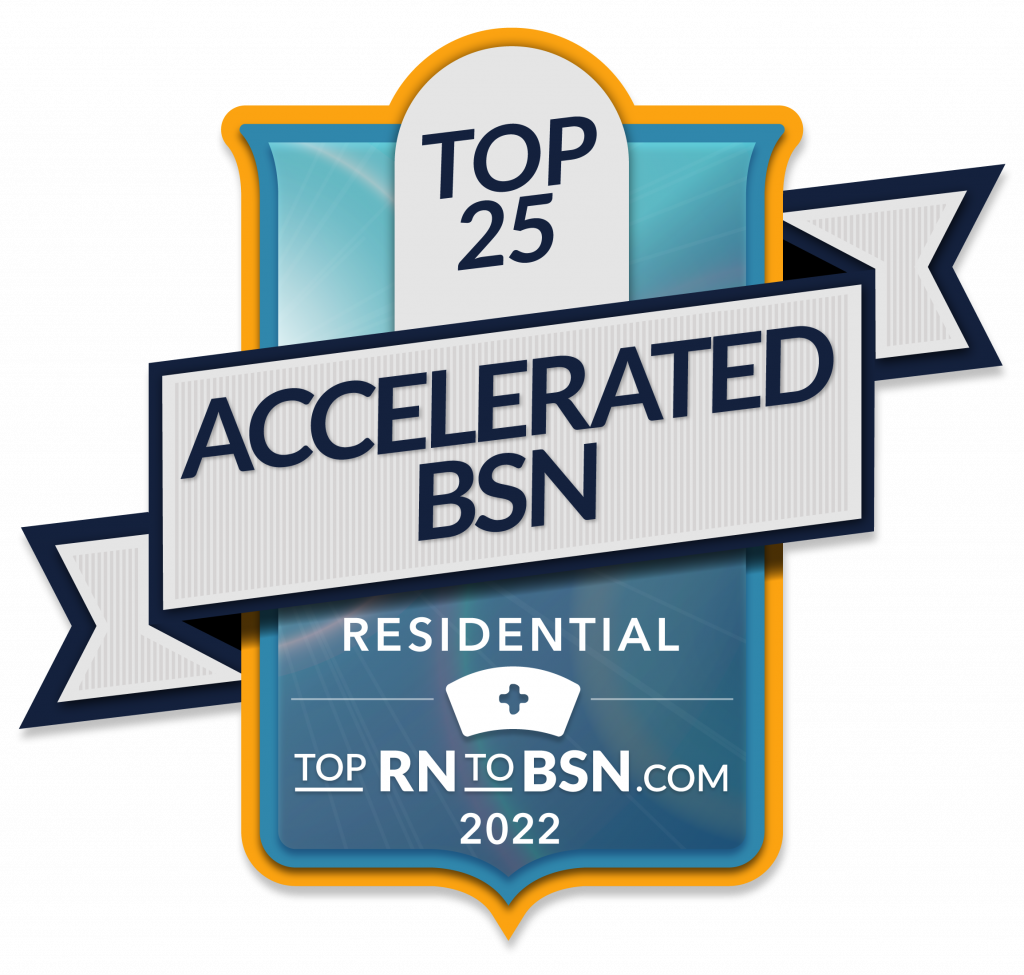
One of the best residential Accelerated BSN programs can help individuals with a bachelor’s degree quickly transition to a career in nursing! In today’s challenging job market, residential Accelerated Bachelor of Science in Nursing programs can quickly prepare you for a new career in nursing. These second-degree programs allow anyone with a Bachelor’s degree to transition to the nursing profession.
A career in nursing offers a good salary, flexibility, and meaningful work. Most of the Residential ABSN programs require anywhere from five to fourteen specific prerequisites. These are often science-focused classes, along with classes like psychology, nutrition, and statistics. Once admitted, the accelerated course of study can last from eleven to eighteen months. Therefore, the TopRNtoBSN schools are essential to consider when deciding to dedicate such an intensive amount of time and dedication to your career path.

Ranking Methodology for the Best Residential Accelerated BSN Programs
TopRNtoBSN editors began with a thorough list of all nursing schools that offer an Accelerated BSN degree program. From there, we focused on schools offering on-campus residential programs. Then we ranked the list of the best accelerated BSN or second degree nursing programs based on Salary, Reputation, and Tuition Costs. This data came from College Scorecard, IPEDS, and Niche. The following are the Top 25 schools with Residential Accelerated BSN Programs.
15 Best Online Accelerated BSN Programs
1. University of Pennsylvania

The Penn Nursing Residential Accelerated BSN (ABSN) program at the University of Pennsylvania offers students the opportunity to choose from three options. Students with a bachelor’s degree in another area can choose the accelerated BSN Second Degree, the BSN to MSN, or the Hillman PhD option. The BSN program is just fifteen months of study. Students participate in clinical placement at prestigious hospitals and engage in research opportunities, mentorship, and learning through the state-of-the-art simulation center. The curriculum places emphasis on interdisciplinary collaboration and practice.
Students at Penn Nursing learn from faculty that includes several top researchers and engage in solving complex challenges. They go on rounds with physicians, nurses, and quality managers. In addition, there are scholarships and prize opportunities for nursing students. Overall the school offers one of the best residential accelerated BSN programs, holds accreditation from the Commission on Collegiate Nursing Education (CCNE), and has an 89.06% NCLEX RN pass rate.
Accreditation: CCNE
NCLEX RN pass rate: 89.06% (2022)
Location: Philadelphia, PA
More: Visit the program
2. Duke University
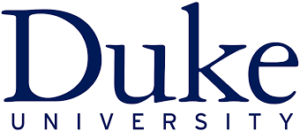
The Duke University Accelerated Bachelor of Science in Nursing (ABSN) program is a full-time, 16-month program. The Duke ABSN is for students that have a previous degree in another area. The on-campus program focuses on evidence-based practice, health and wellness, disease prevention, culturally appropriate care, and clinical leadership. The school’s Center for Nursing Discovery is the only accredited healthcare simulation education center in North Carolina. Prospective nurses engage in hands-on learning through a variety of instructional methodologies in a safe and supportive learning environment. Students complete 58 credit hours of study and nearly 800 clinical hours.
ABSN students benefit from learning from internationally recognized medical faculty and early consideration for admission to the MSN program. Duke University School of Nursing, or DUSON, is the only school in the country to hold three current Centers of Excellence in Nursing Education designations from the National League for Nursing. The nursing school is ranked 10th globally and offers nursing students the opportunity to participate in global clinical and cultural immersion experiences.
Accreditation: CCNE
NCLEX RN pass rate: 87.84% (2022)
Location: Durham, NC
More: Visit the school to learn more about ABSN programs.
3. Purdue University

The sixteen-month Second Degree Bachelor of Science in Nursing degree at Purdue University is one of the best residential accelerated BSN programs. Purdue’s accelerated BSN program is for non-nurses. The program requires that applicants submit proof of completing a bachelor’s in another area with a minimum 3.0 GPA. Applicants also submit an essay that explains why they wish to change their careers. The program prepares prospective nurses to work in various healthcare settings, including community health clinics, private physician’s offices, intensive care or surgery departments, or neonatal intensive care units. Purdue nursing students participate in coursework and clinical placements. Faculty members provide students with learning strategies that guide students to deliver high-quality nursing care to individuals and families.
The Professional Experience in Nursing program features a cooperative work experience for eligible students in collaboration with healthcare employers and the Office of Professional Practice. Students that have completed at least one clinical course have the opportunity to participate in an externship. In addition, students benefit from attending a school that works towards impacting healthcare delivery around the globe. Some students begin their nursing careers upon graduation. In contrast, others continue and earn a graduate nursing degree at Purdue. Graduate nursing programs include an MSN with a choice of several concentration areas. Students can choose from a Doctor of Nursing Practice (DNP) degree or a PhD in nursing. The school had a 97.5% NCLEX first-time pass rate.
Accreditation: CCNE
NCLEX RN pass rate: 97.5% (2020)
Location: West Lafayette, IN
More: Visit the school to learn more about this accelerated nursing degree.
4. University of Washington
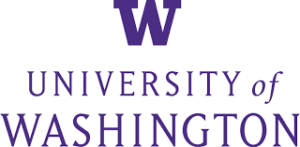
The University of Washington offers a fast-track residential accelerated BSN program (ABSN). This unique program features the opportunity to apply for early admission to the school’s Doctor of Nursing Practice Nurse-Midwifery (DNP-NM) program. The program requires that students hold a baccalaureate degree in a non-nursing field with a minimum of 2.8 GPA. The full-time ABSN with Early DNP Admission program includes course lectures and practice in the simulation center. In addition, the program provides students with more than 1,000 hours of supervised hands-on patient care in the community. UW maintains community partnerships with Seattle Children’s Hospital and the University of Washington Medical Center.
Students experience a smooth transition from undergraduate to graduate studies in this best residential accelerated BSN program while preparing for a nurse leadership position. The DNP study teaches students a solid foundation of how to evaluate leading-edge research and apply it to nursing practice. Students can work at birthing centers, hospitals, military installations, international health facilities, and agencies for research and education.
The University of Washington is one of the preeminent universities in the world. The university focuses on its primary mission of preservation, advancement, and dissemination of knowledge, including its nursing programs. The nursing program holds CCNE accreditation. In addition, the Nurse-Midwifery DNP program has accreditation from the Accreditation Commission for Midwifery Education. The school has an 86.52% first-time NCLEX RN pass rate for BSN graduates.
Accreditation: CCNE
NCLEX RN pass rate: 86.52% (2021)
Location: Seattle, WA
More: Visit the school to learn more about online accelerated BSN programs.
10 Best Nursing Schools in Seattle
5. Florida State University
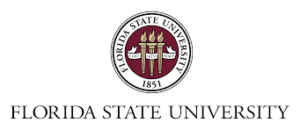
Florida State University offers a Bachelor of Science in Nursing (BSN) program on its main campus. The school admits 72 students in the fall and spring semesters. There is a competitive admissions process to the School of Nursing once applicants complete general education courses and nursing prerequisite courses. The two-year residential program is one of Florida’s best programs and the country. Program outcomes include that the student learns to demonstrate professionalism and knows to integrate values, skills, and knowledge to provide safe and effective nursing care. In addition, students must demonstrate evidence-based nursing practice. Finally, students utilize healthcare technology to provide effective nursing care and demonstrate compassionate nursing care.
The university recently partnered with the United Health Foundation. After receiving a $1.25 million commitment from the foundation, the university prepares nurse practitioners with the expertise to better address the unique needs of individuals that have served in the US Military. The school also offers a DNP program to choose from several specialties. There is also a Family Nurse Practitioner (FNP) certificate program and other certificate programs.
More: Visit the school to learn more about ABSN programs.
6. Rutgers University
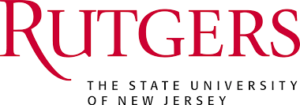
Rutgers University offers a Second-Degree residential BSN program in an accelerated format. Students complete the program and earn their BSN in just 14 months. The program prepares future nurses through rigorous lectures and a clinical studies curriculum. Additionally, the university pairs each student with a faculty advisor that helps the student navigate the fast pace of the program. The Rutgers School of Nursing is a global leader in education, research, and scholarship. So, this nursing degree program is the best accelerated BSN program in NJ.
Rutgers is a world-renowned research faculty with more than 200 clinical partners throughout New Jersey. Graduates choose to begin their nursing career after graduation or earn an MSN, a DNP, or a PhD in nursing. Students and faculty members engage in collaborative research, advocacy, and high-profile presentations to advance nursing science. Rutgers University School of Nursing students, graduates, and faculty focus on continued efforts to impact health care globally. Additionally, the CCNE accredits the BSN programs at Rutgers University.
Accreditation: CCNE
NCLEX RN pass rate: 93.75% (2022)
Location: Newark, New Brunswick, & Blackwood, NJ
More: Visit the school to learn more about ABSN programs.
7. University of Delaware
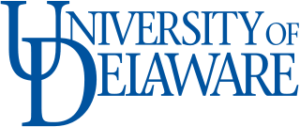
The University of Delaware’s residential Accelerated BSN program is for students with a baccalaureate degree in another area who want to pursue a nursing career. The university admits students into the 17-month on-campus program during the winter term. The mission of the UD School of Nursing is to advance healthcare through education, healthcare innovation, and scholarly inquiry to improve regional, national, and global health and healthcare delivery. The university focuses on its commitment to the values of inclusivity, excellence, and engagement.
The University of Delaware students have the opportunity to apply for many scholarships and assistantships. In addition, the university continually strives to immerse students in real-time opportunities to engage their minds. And it provides students with skills that mold the future of healthcare and that support the community. As a result, the University of Delaware NCLEX pass rate is 79.52%.
Accreditation: CCNE
NCLEX RN pass rate: 79.52% (2022)
Location: Newark, DE
More: Visit the program
8. Binghamton University SUNY

The Binghamton University State University of New York offers one of the best residential Accelerated BSN in Nursing programs. The Baccalaureate Accelerated Track (BAT) program is for students wishing to earn a second bachelor’s degree and also pursue a nursing career. Students complete the rigorous program in just 12 months. Graduation requires 54 credit hours of nursing courses in addition to 74 credits of previously earned prerequisite and general education courses. The clinical component allows students to care for patients in diverse healthcare settings. In addition, student researchers and faculty engage in research to investigate various problems, discover new knowledge, and collaborate with colleagues across the globe.
The Decker College of Nursing and Health Sciences at Binghamton features the Innovative Simulation and Practice Center (ISPC). It provides students with the opportunity to learn through patient simulations, hands-on skills training, and virtual reality scenarios. In addition, the ISPC has accreditation from the Society for Simulation in Healthcare in Teaching and Education.
Accreditation: CCNE
NCLEX RN pass rate: 91.4% (2021)
Location: Binghamton, NY
More: Visit the program
Most Affordable Nursing Schools in NYC
9. Michigan State University

Students that enroll in the Second Degree residential Accelerated BSN (ABSN) program at Michigan State University hold a minimum of a bachelor’s in another field and now want to earn a Bachelor of Science in Nursing (BSN) degree. The full-time 15-month program starts in May and ends the following August. Students can attend classes at the MSU campus in East Lansing or at the Detroit Medical Center in Detroit.
The program builds on prior learning and prepares students to become professional nurses through courses in the humanities, physical, biological, behavioral, and nursing sciences. The program consists of in-class courses, along with 765 clinical hours. Students benefit from accessing the state-of-the-art Janice Thompson Granger Nursing Learning Center and the Learning and Assessment Center. The university considers research to be a high priority for undergraduate students. Program graduates are highly-qualified nurses prepared to sit for the NCLEX exam.
The Michigan State Spartans boast an outstanding record of students earning national and international scholarships. Additionally, they are designated as a gold-status veteran-friendly school by the Michigan Veterans Affairs Agency. In addition, the university faculty and students work together to create partnerships from local areas to communities around the world. Nursing graduates had a recent NCLEX pass rate of 92%.
Accreditation: CCNE
NCLEX RN pass rate: 92% (2022)
Location: East Lansing, MI
More: Visit the program
10. Villanova University

Villanova University offers a Second Degree residential Accelerated BSN program for students with a bachelor’s in a field other than nursing who now want to change their career to nursing. Students benefit from the unique opportunity to follow either the 14-month BSN Express Track or the 23-month BSN Flex Track. Both options provide students with nursing coursework, clinical hours, and research opportunities to become independent thinkers, problem solvers, and professional nurses in a rapidly evolving profession. The College of Nursing has a 98.8% successful undergraduate placement rate and more than 10,000 alumni worldwide.
Students, including those enrolled in the ABSN tracks, focus on serving all communities, including the underserved communities. They participate in education and service programs and also engage in academic, healthcare, and community partnerships. The school has a low faculty-student ratio, with students having the opportunity to work alongside university faculty on research projects.
Accreditation: CCNE
NCLEX RN pass rate: 88.69% (2022)
Location: Villanova, PA
More: Visit the program
11. Lehman College CUNY

The Lehman College residential Accelerated Bachelor of Science in Nursing (ABSN) program consistently ranks among the best schools with Accelerated BSN programs. The school offers the program to students that have graduated with another bachelor’s degree on a competitive basis. The school admits approximately 20 students to the program each year. Students complete the same requirements as students in the traditional BSN but do so in one year. Students learn to demonstrate competency in nursing practice, integrate best practices and clinical judgment, and demonstrate skills in using patient care technologies and information systems. The program also prepares students to demonstrate an understanding of basic research processes. They also learn to implement holistic, patient-centered care across the lifespan and apply leadership skills to effect change and improve safety and patient outcomes.
The ABSN program at Lehman College prepares graduates to start a career in nursing upon graduation or to continue their education in an advanced degree nursing program. The school is the only four-year college in the City University of New York (CUNY) system in the Bronx. It serves a diverse student body, with nearly fifty percent being (50%) first-generation college students.
Accreditation: CCNE
NCLEX RN pass rate: 70.4% (2021)
Location: Bronx, NY
More: Visit the school to learn more about its baccalaureate nursing programs.
12. University of Houston
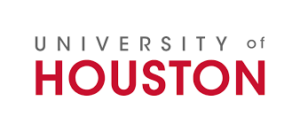
The University of Houston offers the residential Accelerated BSN Second Degree in a traditional face-to-face, on-campus format. The program begins in the spring term. It is an intensive 12-month program for students with a bachelor’s or master’s degree in another field. Students gain knowledge and skills in biological sciences, humanities, social sciences, and nursing to become professional nurses and sit for the NCLEX exam upon graduation. The program focuses on teaching critical thinking skills to evaluate nursing outcomes, practical communication skills, critical analysis, and research findings in nursing practice. Students also learn the professional values of nursing and the legal, ethical, and moral aspects of nursing practice.
Houston’s ABSN students gain the knowledge and skills to enter into the nursing profession to become skilled nurses and leaders in their field. Students have the opportunity to apply for internal and external scholarships. The school boasts full CCNE accreditation and a 96.88% NCLEX first-time pass rate. It is no surprise the University of Houston has one of the top accelerated BSN nursing programs in Texas.
Accreditation: CCNE
NCLEX RN pass rate: 96.88% (2021)
Location: Houston, TX
More: Visit the school for more info about this professional nursing practice accelerated program.
10 Best Nursing Schools in Houston
13. Florida International University

The Nicole Wertheim College of Nursing & Health Sciences at Florida International University offers one of the best residential Accelerated BSN programs in Florida and the country. The ABSN at FIU prepares students with a bachelor’s for a nursing career. The three-semester, full-time program starts in the fall semester of each year and focuses on a curriculum that includes hands-on, learner-centered education. Students gain problem-solving skills, communication skills, interpersonal skills, and ethical reasoning abilities. In addition, they learn the technical nursing skills needed to be successful in nursing practice. The university believes that learning by doing is a crucial component of education programs. The FIU provides students access to the Simulation Teaching and Research Center (STAR Center). The mock hospital uses cutting-edge simulation equipment, web-based technologies, digital imaging systems, and other state-of-the-art equipment and technologies to prepare students for real-world nursing practice.
The nursing program offers students the opportunity to apply for scholarships and other financial aid to help with some program costs. The school strives for academic excellence and social responsibility. It takes pride in its highly qualified faculty and many student resources to help students prepare for their nursing careers. Florida International University is a Top 50 Public Research University. It ranks 1st in the state according to the Board of Governors’ performance-based funding scores.
Accreditation: CCNE
NCLEX RN pass rate: 88.89% (2022)
Location: Miami, FL
More: Visit the school for more info about this accelerated program.
10 Best Nursing Schools in Miami
14. Hunter College CUNY

The School of Nursing at CUNY Hunter College offers a residential Accelerated BSN Second Degree Program. Hunter holds the distinction of being the flagship nursing school of The City University of New York (CUNY). The school’s post-baccalaureate program is for students with a 3.2 minimum grade point average or GPA in a non-nursing bachelor’s degree that want to pursue a nursing career. The degree requires 51 credit hours and takes approximately 18 months to complete. Students complete the coursework and clinical requirements over five semesters and qualify to take the NCLEX exam upon graduation. The Hunter ABSN program provides a comprehensive base education for students that wish to continue their education and earn a graduate degree. In addition, Hunter College offers MSN programs with five concentrations, a post-graduate nursing certificate program, and doctoral programs.
Hunter College focuses on preparing nurses for 21st-century nursing practice in urban environments with diverse populations. The college consistently works to provide quality education and to serve culturally diverse urban and global communities through scholarship, service, and research. Students have the opportunity to participate in research with faculty as research assistants. The school has a first-time pass rate on the NCLEX RN exam of 93.3%.
Accreditation: CCNE
NCLEX RN pass rate: 93.3% (2021)
Location: New York, NY
More: Visit the school for more info about this accelerated program.
15. California State University Los Angeles

The California State University Los Angeles or Cal State LA residential Accelerated BSN program is for students who do not hold current RN licensure and hold a bachelor’s in a field other than nursing. The university admits a new cohort of students each June for the program that consists of 53 semester hours of study. Students complete both didactic and clinical coursework once admitted to the program and throughout the 15 months of study. The program prepares adult learners to become 21st-century professional nurses with the opportunity to advance their careers. In addition, the school offers several graduate programs and the opportunity to begin nursing practice after graduating from the program.
As one of the best accelerated BSN programs in California, Cal State LA provides students with several opportunities for success. The Educational Opportunity Program serves first-generation undergraduate students from California. It helps them overcome the social and economic barriers to attaining higher education. The school offers assistance through the Career Center and the Veterans Resource Center. In addition, Cal State LA offers several scholarships that help lower the ABSN program’s cost.
Accreditation: CCNE
NCLEX RN pass rate: 94.74% (2021-2022)
Location: Los Angeles, CA
More: Visit the school for more info about this accelerated program.
16. Stony Brook School of Nursing
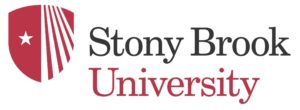
The Stony Brook School of Nursing offers a residential Accelerated BSN program. It gives students with a bachelor’s degree in a non-nursing field the opportunity to earn a BSN in just 12 months. The 1 year accelerated BSN programs provide students with various learning opportunities that focus on individuals, families, groups, and communities. Students gain exposure to various delivery models of professional nursing care, which helps students learn to integrate the best current evidence with clinical expertise in the delivery of safe, high-quality nursing care to individuals, families, and communities. In addition, students learn the latest information management and patient care technologies and apply knowledge and skills in nursing leadership, quality improvement, and clinical expertise.
The school emphasizes that it embraces the four aspects of scholarship: discovery, teaching, application to clinical practice, and the integration of ideas from nursing and other disciplines. Stony Brook School of Nursing offers several awards and scholarship opportunities, access to the Health Science Library, and various other student services. The school has an impressive 95.5% pass rate for the NCLEX exam.
Accreditation: CCNE
NCLEX RN pass rate: 95.5% (2021)
Location: Stony Brook, NY
More: Visit the school for more about this accelerated program.
17. West Virginia University
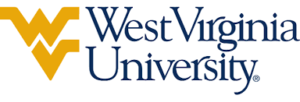
The School of Nursing at West Virginia University offers one of the best residential Accelerated BSN programs. Furthermore, the WVU “BS/BA-BSN” Bachelor of Science in Nursing program has only one start date every year in the spring. Students that hold a baccalaureate degree have the opportunity to earn a BSN in an accelerated format.
Offered at the Morgantown campus, the program is full-time with 18 months of continuous study. The WVU nursing program focuses on the five core competencies, including critical thinking, nursing interventions, the professional role, caring, and communications. Students learn from expert faculty, many of whom continue their practice. The school envisions an enhanced quality of life, optimal health, and excellent health care for residents of West Virginia and the global community. There is a commitment to the values of integrity, excellence, and inclusiveness.
WVU offers unique benefits for students enrolled in the accelerated BSN program. There are two state-of-the-art simulation facilities rather than one facility available at many schools. In addition, students have the benefit of the HSC Student Laptop Computer Program. Students have access to various computer resources, including a personal laptop computer and onsite computer support. The computer program and other benefits provide students with tools that help with the program studies that lead to graduation and the opportunity to sit for the NCLEX exam.
Accreditation: CCNE
NCLEX RN pass rate: 100% (2021)
Location: Morgantown, WV
More: Visit the school for more about online ABSN programs.
18. SUNY University at Buffalo
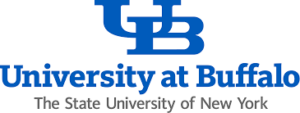
The SUNY University at Buffalo residential Accelerated BSN program provides students that already have a bachelor’s degree or a master’s degree with the opportunity to start a nursing career. The degree is a highly competitive, intensive 12-month program for career-minded students. There is a prescribed sequence for the required coursework and students must complete 700 clinical hours. Students also complete a three-week preceptorship, which provides the opportunity to work one-on-one with a nurse in a clinical setting. After completing the 59 course credit hours and graduating, students can sit for the NCLEX exam.
All students enrolled in the Accelerated BSN program have access to the clinical skills lab and the health assessment lab. In addition, the program provides the opportunity for interested students to earn up to seven graduate credits. Students can apply for a graduate degree in a specialized area of interest. Students enrolled in the best residential Accelerated BSN program have a 97.7% NCLEX pass rate.
Accreditation: CCNE
NCLEX RN pass rate: 97.7% (2021)
Location: Buffalo, NY
More: Visit the school for more about its accelerated nursing programs.
19. Clemson University

The Clemson University residential Accelerated BSN Second Degree Nursing program is for individuals with a minimum of a baccalaureate degree in another field. Each fall, a new cohort of twenty-five students begins the program. The program consists of 16 months of intensive full-time study. Students engage in rigorous clinical experiences in addition to the on-campus coursework. They learn to use critical thinking skills to provide community-based professional nursing in multiple settings across the lifespan. Throughout the program, professional responsibility and standards of nursing practice integrate with the technical curriculum. The program also prepares professional nurses with leadership skills, management skills, and knowledge of health policy.
Clemson Tigers that enroll at the Clemson School of Nursing can start their nursing career immediately after graduation, or continue their nursing education. Some students complete an MSN in Nursing, a post-graduate certificate program, a DNP program, or also a PhD in Nursing. Clemson School of Nursing has nearly a one-hundred percent (100%) job placement rate within three months of graduation.
Accreditation: CCNE
NCLEX RN pass rate: 90.61% (2022)
Location: Clemson, SC
More: Visit the school for more about its accelerated nursing programs.
20. University of Pittsburgh
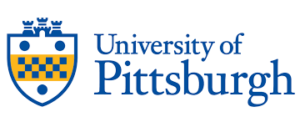
The University of Pittsburgh offers a residential Accelerated BSN Second Degree program. The Pittsburg ABSN is for individuals who currently hold a bachelor’s degree in a field other than nursing and want to pursue a nursing career. This program builds on knowledge from a previous bachelor’s degree and also prepares students to become registered nurses. The program focuses on a rigorous curriculum that consists of just three semesters of full-time, on-campus study. Students also complete 810 hours of clinical experiences in diverse healthcare settings. Some settings include the six major teaching hospitals in the area and more than 50 healthcare facilities.
Students enrolled in the University of Pittsburgh ABSN program learn from the same faculty and complete the same nursing courses and clinical as students enrolled in the traditional four-year BSN program. As a result, the school consistently ranks among the top nursing schools in the US and around the globe. In addition, many students choose to advance their career opportunities by completing a graduate degree, such as the MSN, DNP, dual DNP-PhD program, or a PhD program. Furthermore, the university had an 87.40% NCLEX pass rate.
Accreditation: CCNE
NCLEX RN pass rate: 87.40% (2022)
Location: Pittsburgh, PA
More: Visit the school for more about this accelerated nursing program.
21. Northeastern University

Northeastern University offers a residential accelerated BSN program near Boston. This campus based program provides students with a non-nursing bachelor’s degree and an opportunity to earn a second degree in nursing quickly. Applicants with a minimum of 3.0 GPA can earn an accelerated BSN at the Bouve College of Health Sciences. Students learn through online coursework and hands-on learning. The 16-month program immerses students in nursing labs and clinical rotations at top healthcare facilities that provide real-world experiences. Students learn to deliver compassionate, competent care to patients and deliver care that meets patients’ unique cultural and faith needs in diverse patient populations. They also demonstrate clinical judgment and learn to collaborate with other healthcare professionals.
Prospective students have more opportunities to start the ABSN program compared to some other schools. The university admits new cohorts of ABSN students three times a year. The CCNE accredits the nursing programs at Northeastern, which has an 82% NCLEX pass rate.
Accreditation: CCNE
NCLEX RN pass rate: 82% (2022)
Location: Burlington, MA
More: Visit the school for more about this accelerated nursing program.
22. University of Rochester

The residential Accelerated BSN program at the University of Rochester is for students with a baccalaureate degree in a field other than nursing. Rochester’s Accelerated Programs for Non-Nurses (APNN) provide an opportunity for students to both change careers and earn a BSN. So, students can complete Rochester’s Accelerated Bachelor’s Program for Non-Nurses (ABPNN) in twelve months. In addition, the university’s association with the University of Rochester Medical Center provides clinical experiences that are literally in the neighborhood. The challenging program includes clinical rotations in areas such as med-Surg, pediatrics, psychiatry, and obstetrics.
The university remains focused on academic innovation to prepare students for academic success. Additionally, the School of Nursing awards scholarships to ABSN students that demonstrate outstanding academic achievement and also leadership potential. The school also offers several other internal and external scholarships to help ABSN students finance their education.
Accreditation: CCNE
NCLEX RN pass rate: 84.0% (2021)
Location: Rochester, NY
More: Visit the school for more about this accelerated nursing program.
23. University of Massachusetts Amherst
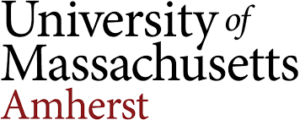
The University of Massachusetts Amherst residential Accelerated BSN prepares students for a career in nursing as students with a second bachelor’s degree. Students complete the full-time program on campus in just 17 months. The university admits students each year in August and prepares them to become proficient in nursing skills and technology. Students engage in clinical experiences for at least two days a week for each term and engage in NCLEX assessments. Students have the opportunity to start their nursing career immediately after graduation or to continue their nursing education at the school to earn a graduate degree.
The UMass Amherst offers outstanding student resources, including access to the W.E.B. DuBois Library, various scholarships, and other possibilities to finance the Accelerated BS in Nursing program costs. In addition, the program has accreditation from the CCNE and has an 81% NCLEX pass rate.
Accreditation: CCNE
NCLEX RN pass rate: 81% (2022)
Location: Amherst, MA
More: Visit the school for more about this accelerated nursing program.
15 Best Online RN to BSN Programs in MA
24. Florida Atlantic University
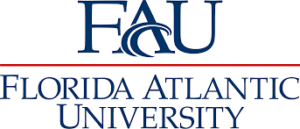
Applicants for Florida Atlantic’s residential Accelerated BSN program must have a previous bachelor’s degree in another field before the application deadline. The program is full-time and also takes four semesters to complete. During the program, students spend 24-40 hours in classes and clinical practice. In addition, they will spend an estimated forty hours each week studying. The program is fast-paced and highly demanding. So prospective students should refrain from working while enrolled.
Florida Atlantic University is Southeast Florida’s first public university. The main campus is in Boca Raton, and there are also five satellite campuses throughout the state. The Christine E. Lynn College of Nursing is one of FIU’s notable colleges. So, the nursing school offers a variety of programs, including the highly acclaimed Accelerated BSN.
Accreditation: CCNE
NCLEX RN pass rate: 97.01% (2022)
Location: Boca Raton, FL
More: Visit the school for more about this accelerated BSN degree.
25. Mount Carmel College of Nursing
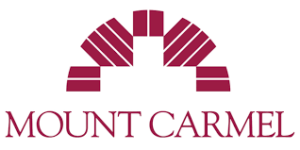
Students can complete the second-degree residential Accelerated BSN Program at Mount Carmel College in as few as thirteen months. The program is for students with a non-nursing degree interested in becoming Registered Nurses (RNs). With forty hours per week of class and clinical requirements, the SDAP Accelerated BSN degree from Mount Carmel is demanding. The program begins in January, and students sit for the NCLEX registered nursing exam by the following February.
Mount Carmel has long-standing roots dating back to the turn of the 20th century. The school opened in 1903 by the sisters of the Holy Cross. Its College of Nursing has the most extensive BSN program for a private school in Ohio. The undergraduate population is diverse, and the school boasts a graduation rate of eighty percent. As a result, Mount Carmel is one of the best options for students seeking a nursing education today, with degree options from certificates to a doctorate and multiple learning options.
Accreditation: CCNE
NCLEX RN pass rate: 87.83% (2020)
Location: Columbus, Ohio
More: Visit the school for more on this BSN degree.
Best Nursing Schools Columbus Ohio
What Is a Best Residential Accelerated BSN Program?
A residential Accelerated BSN program provides students that already have at least a baccalaureate degree with the opportunity to earn a Bachelor of Science in Nursing (BSN) degree in an accelerated format. The basic idea is students completed all the general education requirements when they earned their first Bachelor’s degree. Since students already have a degree, it takes less time to complete the BSN because the prerequisite courses or core classes were met by the previous degree.
| Starting Education | Program | License |
|---|---|---|
| high school | BSN | RN |
| associate degree in nursing | RN to BSN | RN |
| bachelor’s degree | ABSN | RN |
There are quite a few different programs to train nurses. All of the BSN degrees require the same 120 credits to earn a degree. But these programs are innovative and flexible to account for differences in education and work experience. For example, an online RN to BSN program is for a professional RN with an associate degree and a nursing license. They take online courses while continuing to work as a nurse.
How Long Does it Take to Earn an ABSN?
So the classes students need to take are specific to the second degree in nursing accelerated BSN. For example, some schools feature the opportunity to earn a degree in just one year of study. At the same time, some programs take up to 18 months to complete the ABSN requirements. Accelerated BSNs are offered both online and in traditional BSN programs on-campus and average four semesters of study.
Is a Residential Accelerated BSN Hard?
Most accelerated nursing programs are rigorous. The curriculum of an accelerated BSN is typically the same curriculum taught in a traditional BSN program. But, the difference is the fast pace, which requires commitment and motivation, and the ability to complete the requirements within the specified time. In addition, students typically meet with an adviser or mentor throughout the program that helps with completing the program.
What Do You Learn in an Accelerated BSN Program?
An accelerated BSN program typically covers the same curriculum as a traditional four-year BSN program but in a condensed format. It typically takes aspiring nurses 12 to 18 months to complete. Nursing coursework includes human anatomy, physiology, microbiology, pharmacology, nutrition, health assessment, pathophysiology, and nursing research.
BSN students also learn communication skills and practice clinical skills in a variety of settings. In addition, students participate in clinical rotations to learn how to provide care to patients with different illnesses. They learn the nursing process, how to use technology in nursing, and how to manage patient care.
Is a Best Residential Accelerated BSN Program Worth It?
There is a nursing shortage across the country and in many global communities. Earning an accelerated nursing degree from one of these nursing programs allows students to graduate much sooner than completing a traditional BSN program. As a result, students have the opportunity to leave a career that they do not like and enjoy a rewarding nursing career. In addition, the degree prepares students to enroll in one of the many master’s degree programs for nursing.
The Bureau of Labor Statistics (BLS) reports the national average salary for Registered Nurses is $77,600 per year. However, the range is from $59,450 to more than $120,250. So the salary is worth the accelerated BSN programs cost.
What Are the ABSN Admission Requirements?
Admission requirements for the best accelerated nursing programs vary by school. Generally, applicants must have a minimum of a bachelor’s degree in any discipline and have completed a set of prerequisite coursework. Typical prerequisite classes include general chemistry, organic chemistry, general biology, developmental psychology, anatomy and physiology, microbiology, nutrition, and introductory statistics.
Additionally, admissions requirements for prospective nursing students typically include:
- must submit official transcripts from previous schools
- have a minimum GPA of 3.0 in their undergraduate studies
- submit letters of recommendation, a resume, and a personal statement or personal essay
- some programs may also require an interview or placement test
Are the Best Residential Accelerated BSN Programs Harder To Get Into?
Schools that offer the best accelerated second-degree BSN programs require that students already have a degree in another area. Students also have to meet the required minimum cumulative GPA. A small cohort of students is admitted each term to this intensive program. So, students concerned about difficulties getting into one of the best schools for accelerated nursing programs may want to consider a school that admits more than one cohort of students a year.
How Much Do ABSN Programs Cost?
The cost of an accelerated BSN program can vary significantly depending on the institution. Generally, out of state students pay more than in state residents at state universities. Additionally, private colleges usually cost more than state schools.
Students can expect to pay anywhere from $7,000 to $30,000 for an ABSN program. Some schools may offer scholarships or other forms of financial aid to help cover the cost. But remember, you must attend an accredited institution to receive federal financial aid. Common options for payment include federal loans, private loans, grants, and scholarships. Additionally, some employers may offer tuition assistance for employees pursuing a BSN.
Should You Work During a Best Residential Accelerated BSN Program?
Accelerated nursing programs consist of a rigorous program of study and clinical requirements. Some students may find it challenging to work and complete the program. As a result, some schools may not allow students to work while in an accelerated nursing program.
Residential vs Online Accelerated BSN
Residential accelerated BSN programs are traditional college programs that are condensed into a shorter period of time. This type of program is typically completed in 12 to 18 months by attending classes on campus.
Online programs BSN programs are online programs that offer a more flexible schedule and allow students to complete their coursework at their own pace. This type of program allows students to complete their coursework from home and can be completed in as little as 12 months. However, some programs may take up to 24 months to complete.
Whichever format you choose, make sure your school and program have accreditation. The nursing program accrediting bodies are the Accreditation Commission for Education in Nursing (ACEN) and the Commission on Collegiate Nursing Education (CCNE). Schools should have accreditation from a regional body like the Southern Association of Colleges and Schools Commission on Colleges.
Other Schools with ABSNs
Our list does not contain all the schools with accelerated programs for nursing. So, if you are still looking, one of the nursing schools below may have an accelerated second degree BSN for you.
- Georgia Southern University
- Truman State University
- Stony Brook University
- Case Western University
- Ball State University
- Northeast Alabama Community College
- Western Illinois University
- George Washington University
- Bowling Green State University
- Texas Christian University
- Grand Valley State University
- University of Wisconsin
- East Carolina University
- Augustana University
- New York University
- Los Angeles Harbor College
- Creighton University
- Rhode Island College
- University of North Florida
- Metropolitan State University
- Montana Tech
- New Mexico State University
Career Advancement
Motivated students interested in an advanced practice nursing career can complete an Accelerated MSN program in as little as 3 years.
Related:






